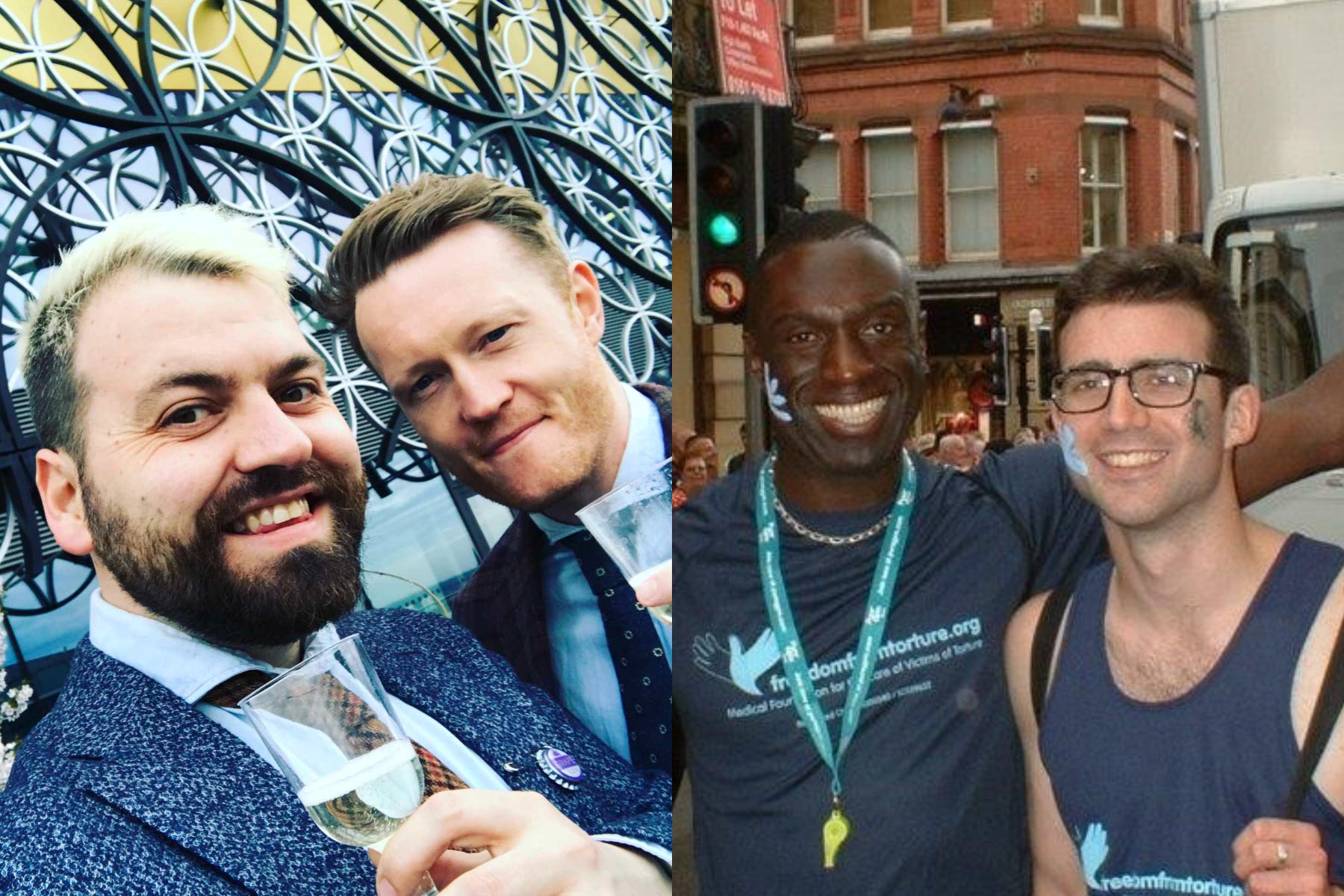‘Marriage was not in our vocabulary’ – couples mark 10 years of LGBT+ weddings
Two couples have shared their views on the Marriage (Same Sex Couples) Act 2013 a decade after the first weddings took place.

Your support helps us to tell the story
From reproductive rights to climate change to Big Tech, The Independent is on the ground when the story is developing. Whether it's investigating the financials of Elon Musk's pro-Trump PAC or producing our latest documentary, 'The A Word', which shines a light on the American women fighting for reproductive rights, we know how important it is to parse out the facts from the messaging.
At such a critical moment in US history, we need reporters on the ground. Your donation allows us to keep sending journalists to speak to both sides of the story.
The Independent is trusted by Americans across the entire political spectrum. And unlike many other quality news outlets, we choose not to lock Americans out of our reporting and analysis with paywalls. We believe quality journalism should be available to everyone, paid for by those who can afford it.
Your support makes all the difference.One member of a same-sex couple has said marriage was not a part of their “vocabulary” before milestone legislation introduced in England and Wales allowed same-sex partners to legally marry for the first time 10 years ago.
The Marriage (Same Sex Couples) Act 2013 introduced civil marriage for same-sex couples in England and Wales, with the first taking place on March 29 2014.
Antony and David Lowbridge-Ellis, both 41, from Wednesbury in the West Midlands, said the legislation was a “major milestone” adding they thought marriage “would never be on the cards” for them.
The couple held their wedding 364 days after the first same-sex marriages took place, noting it was “the last day of the first full year of marriage equality”.
David, a director of school improvement for the Matrix Academy Trust, told the PA news agency: “Growing up gay, I always thought that marriage would never be on the cards.
“I knew I would never marry a woman so I thought marriage was not a part of my vocabulary, but then marriage had entered my vocabulary because of same-sex marriage being possible.”
David said he never entertained the idea of a civil partnership because marriage “has to be about true equality”, adding that he used to “hate” going to weddings as a child.
“I used to go to family weddings and I can’t tell you how much I used to hate going to weddings because I felt like this would be something I would never be able to have for myself, so there was a degree of jealousy there,” he said.
“As soon as it became possible, those thoughts started evaporating quite quickly.”
Antony, head of communications for a construction joint venture, said it is “so important” that they mark and celebrate their wedding anniversary every year in order to act as “role models” for the next generation.
“We always try to do something and our friends and family know it’s really special and important to us,” he said.
“I want people to grow up knowing that it’s okay to love who you want to love and you should expect to have the same as what everyone else can have, we shouldn’t be any different.”
The pair were married in the Library of Birmingham nine years ago, saying the date of their wedding was a “happy accident”.
“We planned it for March 28 and when we worked out that it was exactly 364 days of equal marriage, we thought it was perfect to end the first year of equal marriage with us getting married,” Antony said.
Meanwhile, Adam O’Leary, 35, and Ben Amponsah, 55, from Manchester, told PA marriage was an “abstract concept” before the milestone legislation.
The couple married at the Bluecoats Art Gallery in Liverpool in September 2014, with Mr O’Leary saying marriage was not something he had considered until the pair met in 2012.
“I always wanted to get married, but it was an abstract concept,” Mr Amponsah, a psychotherapist, told PA.
“By the time I met Adam, I was always open to the possibility of a long-term relationship. When you’re with someone and you love them, why not formalise it?”
Mr O’Leary, a social care commissioner, said marriage was “not something I saw happening until I met Ben”.
“When I was a teenage boy growing up gay, I don’t think that was something I imagined,” he said.
He added that he preferred the idea of being married to Mr Amponsah rather than being in a civil partnership so they could be seen in society as “being equal to any other couple”.
Mr Amponsah recalled a fond moment that he said “stays with me” when members of the public congratulated the couple who walked hand-in-hand through Liverpool city centre after tying the knot.
The couple said the milestone legislation has created greater equality and helped to normalise same-sex relationships.
Mr O’Leary said: “In terms of the LGBT community, it has normalised gay or same-sex relationships and made things a lot more fair in terms of things like a spouse, inheritance and all of those issues that can be quite tricky when it’s outside of a formal relationship.”
Mr Amponsah added: “Ultimately, we are the same. We have the same relationships. It’s important for the law to recognise that and I think that’s clearly what this did.”